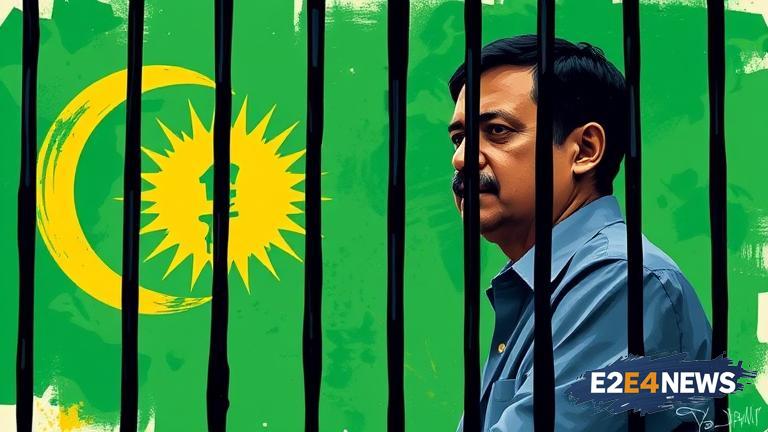The Maldives government has come under fire from the international community for its decision to re-imprison former President Mohamed Nasheed. Nasheed, who was the country’s first democratically elected president, was arrested and sentenced to 13 years in prison in 2015 on terrorism charges. The conviction was widely seen as a politically motivated move to silence the opposition leader. Despite international pressure, the Maldives government has refused to release Nasheed, citing the need to uphold the rule of law and due process. The government has argued that Nasheed’s conviction was lawful and that he must serve his sentence. However, human rights groups and opposition parties have raised concerns about the fairness of the trial and the treatment of Nasheed in prison. The international community, including the United Nations and the European Union, has called for Nasheed’s release and an end to the persecution of opposition leaders in the Maldives. The government’s decision to re-imprison Nasheed has been seen as a blow to democracy and human rights in the country. The Maldives has a history of suppressing opposition and dissent, and the re-imprisonment of Nasheed has raised fears about the future of democracy in the country. The opposition party, the Maldivian Democratic Party (MDP), has condemned the government’s decision and called for Nasheed’s immediate release. The party has also called for international pressure to be brought to bear on the government to respect human rights and the rule of law. The international community has been critical of the Maldives government’s human rights record, and the re-imprisonment of Nasheed has further damaged the country’s reputation. The government’s decision has also been seen as a sign of its increasing authoritarianism and disregard for international opinion. The Maldives is a popular tourist destination, and the government’s human rights record has raised concerns among tourists and investors. The country’s economy is heavily reliant on tourism, and the government’s actions have raised fears about the impact on the economy. The international community has called for the government to take steps to address the human rights situation in the country and to release Nasheed and other opposition leaders. The government has refused to bow to international pressure, citing the need to maintain law and order in the country. However, the opposition party and human rights groups have argued that the government’s actions are a sign of its weakness and fear of opposition. The re-imprisonment of Nasheed has also raised concerns about the independence of the judiciary in the Maldives. The trial was widely seen as unfair, and the conviction has been criticized by human rights groups. The government has argued that the judiciary is independent and that the trial was fair, but the opposition party and human rights groups have raised concerns about the lack of transparency and accountability in the judicial system. The international community has called for the government to take steps to address the human rights situation in the country and to ensure that the judiciary is independent and impartial. The Maldives government has faced criticism from the international community for its human rights record, and the re-imprisonment of Nasheed has further damaged the country’s reputation. The government’s decision has also been seen as a sign of its increasing authoritarianism and disregard for international opinion. The opposition party and human rights groups have called for international pressure to be brought to bear on the government to respect human rights and the rule of law. The government’s actions have raised concerns about the future of democracy in the Maldives, and the international community has called for the government to take steps to address the human rights situation in the country.
